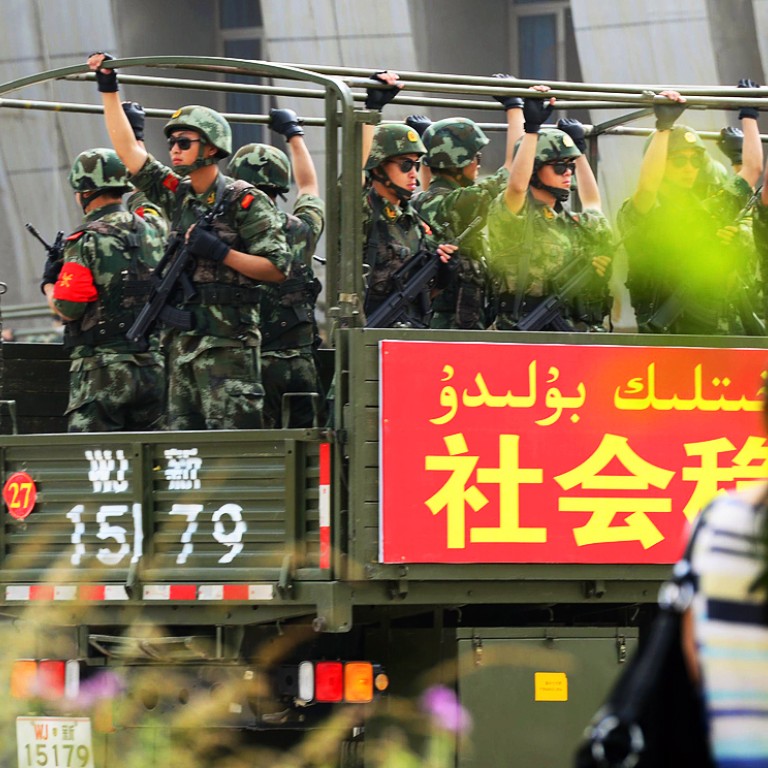
China’s draft anti-terrorism laws a ‘licence to commit human rights abuses’
Human Rights Watch says the planned legislation would introduce even higher levels of state surveillance and control on the mainland
The US-based advocacy group Human Rights Watch on Tuesday urged China to revise draft legislation aimed at combating terrorism, saying it was little more than a licence to commit human rights abuses.
The law, which was made public for consultation last November, would establish a new counter-terrorism body that would have the power to designate organisations and their members as terrorists without any protection through due legal process.
The draft’s definition of terrorism includes thought, speech or behaviour that attempt to subvert state power, incite ethnic hatred or split the state. Subversion and “splittism” are catch-all charges that have been used against dissidents.
Human Rights Watch China director Sophie Richardson called for the draft law to be brought in line with international legal standards.
“The Chinese government needs to respect rights, not build a new architecture of surveillance,” Richardson said in a statement.
The law would require all telecommunications and internet service providers to help the government in preventing the spread of terrorism-related content.
Public areas would be fitted with facial recognition equipment, a system that “could easily be abused for personal or political ends”, Human Rights Watch said.
China’s government has stressed that the nation is facing a serious and complex struggle against terrorism. Hundreds of people have been killed over the past two years in the far western region of Xinjiang in unrest the government has blamed on Islamists who want to establish a separate state called East Turkestan.
China’s Foreign Ministry did not immediately respond to a faxed inquiry for comment.
Rights groups and exiles say the government’s repressive policies are fuelling resentment among the Muslim Uygur people who call Xinjiang home.

